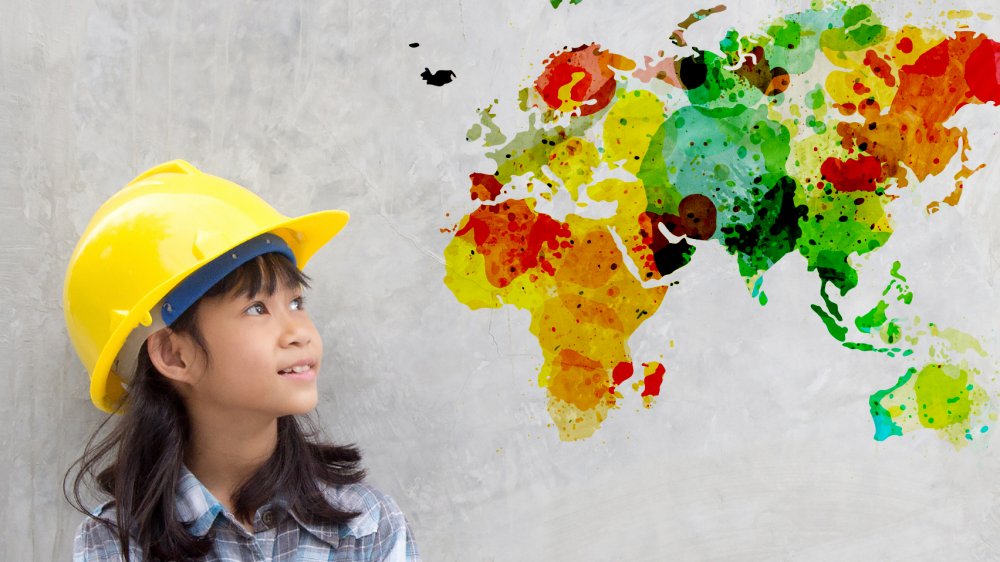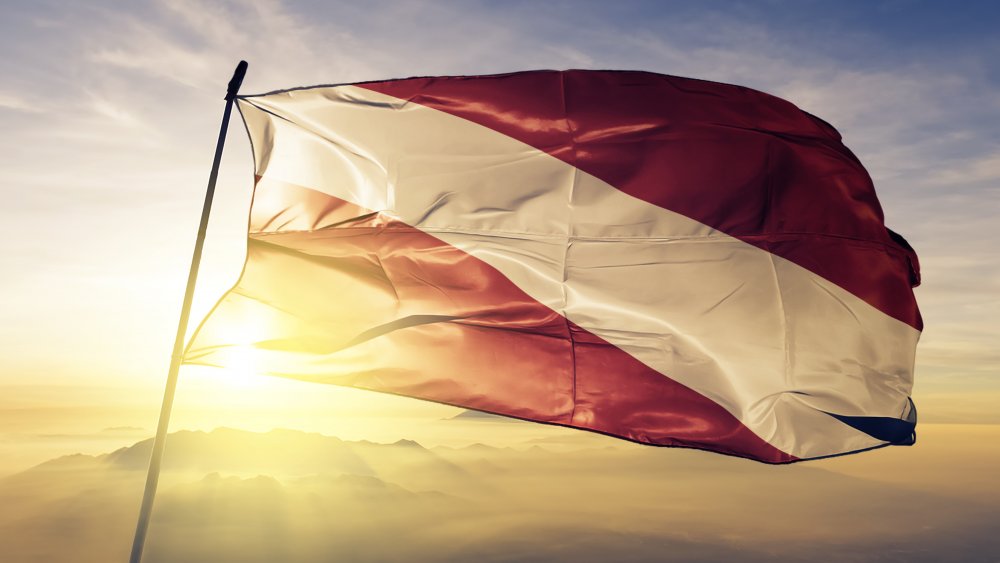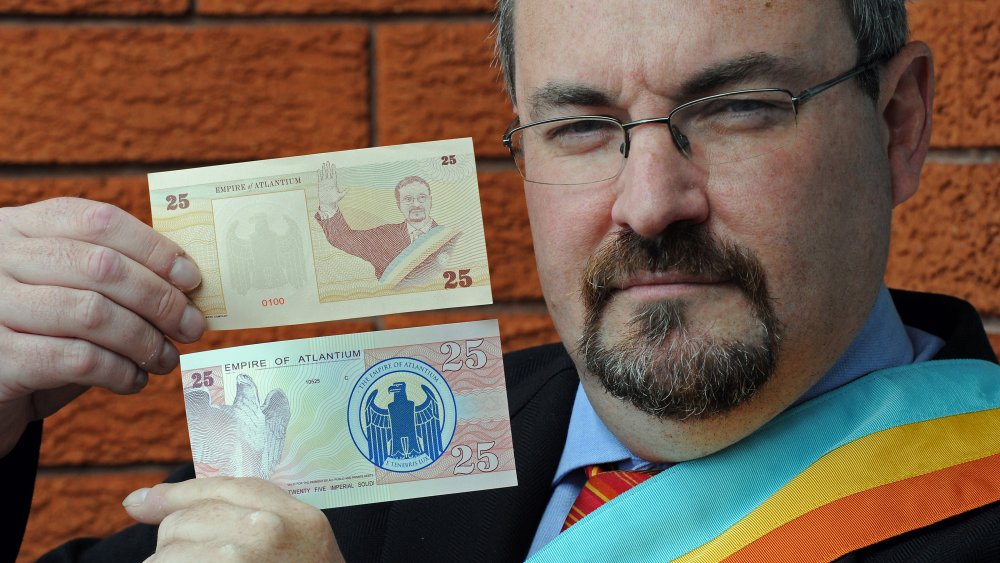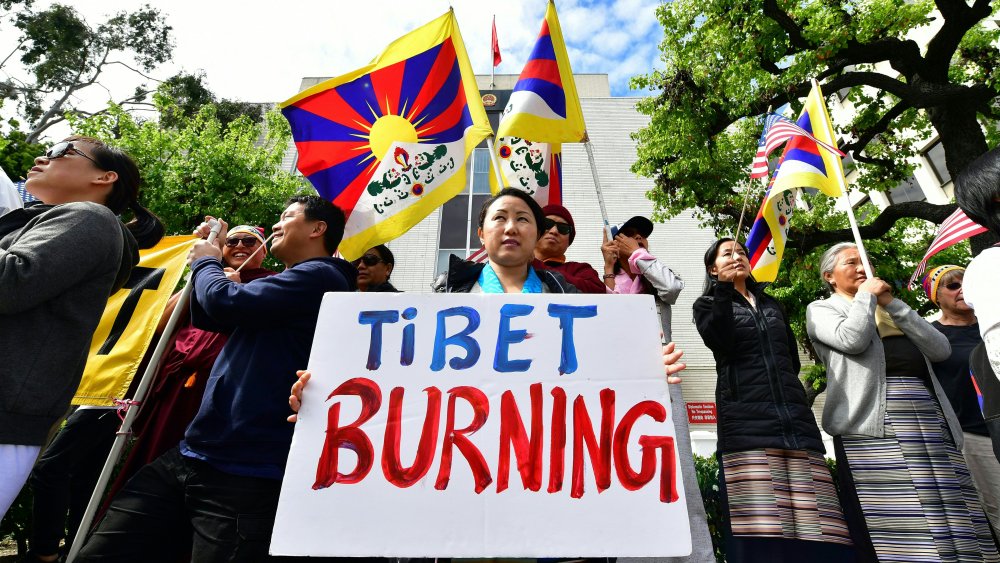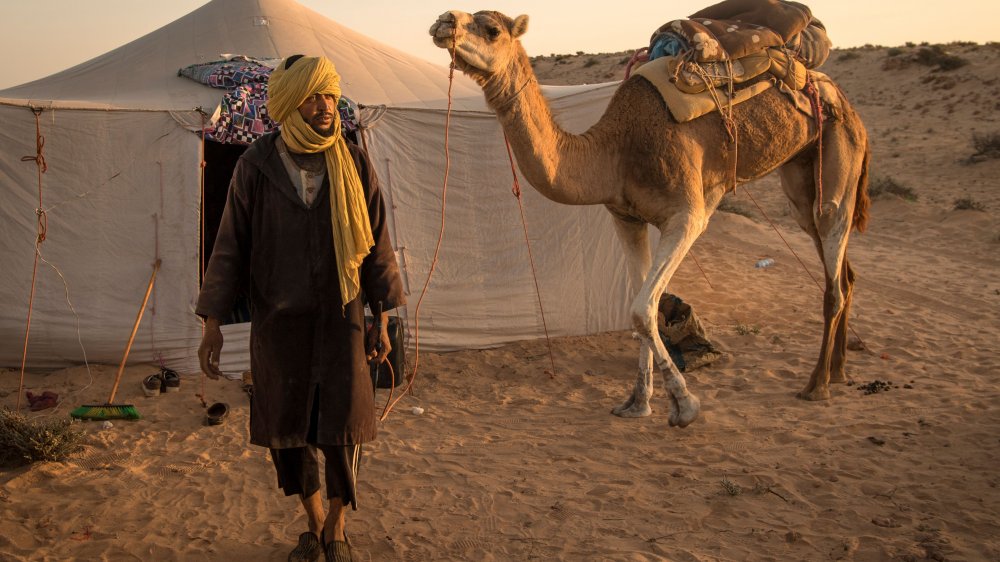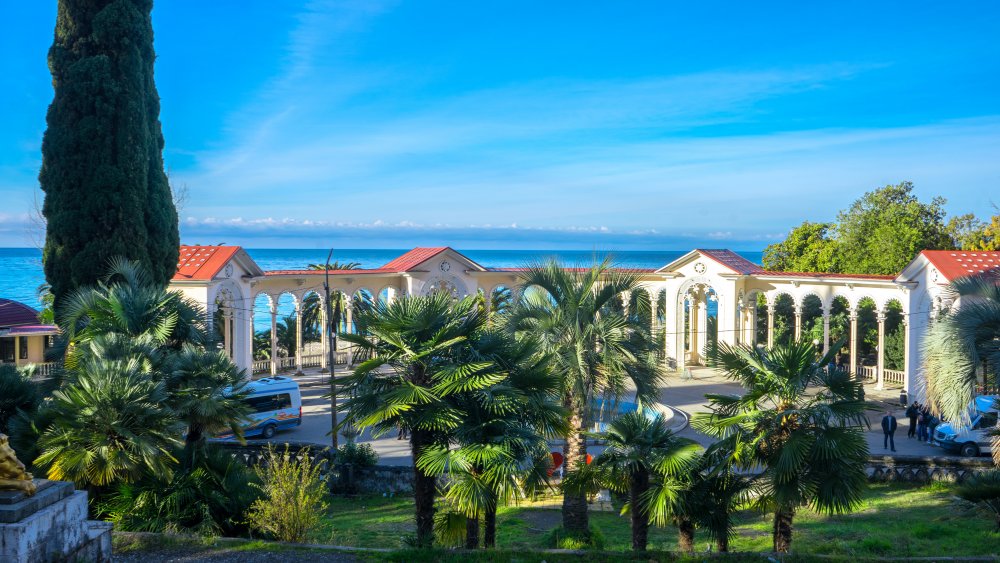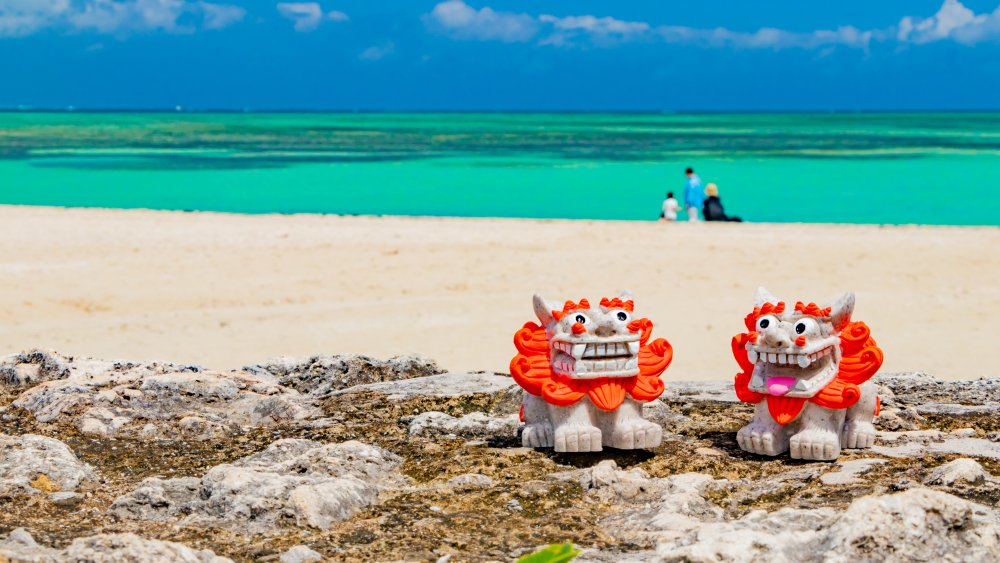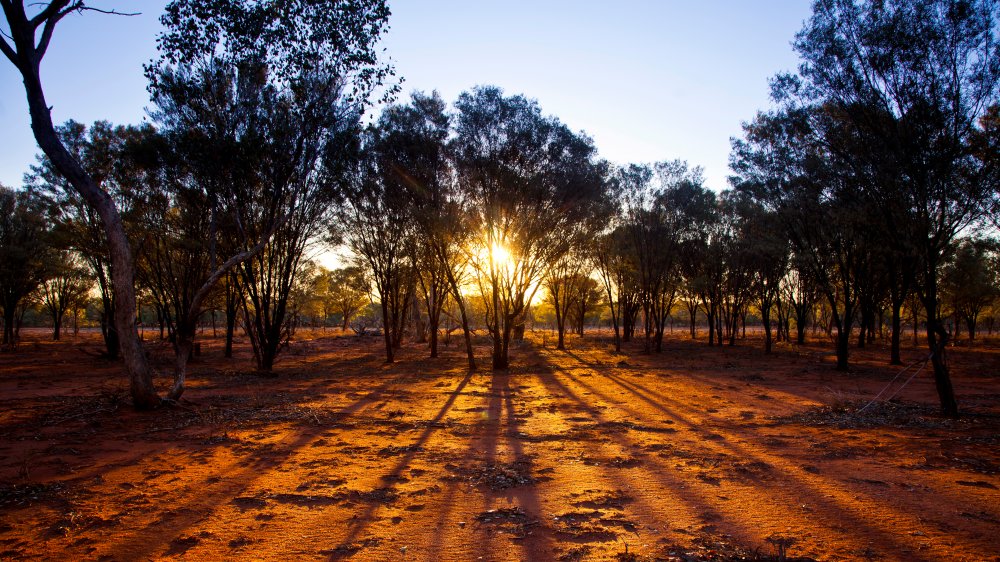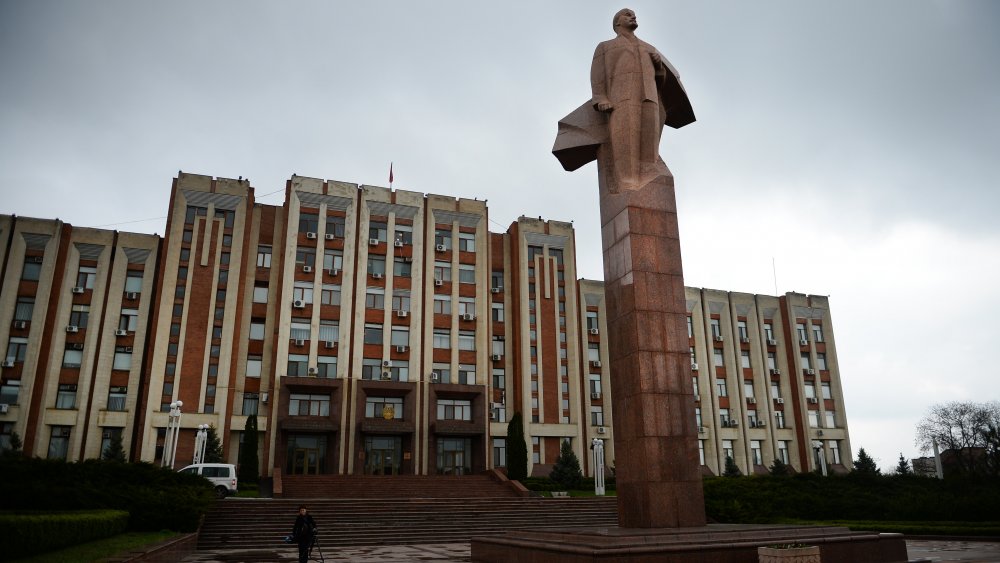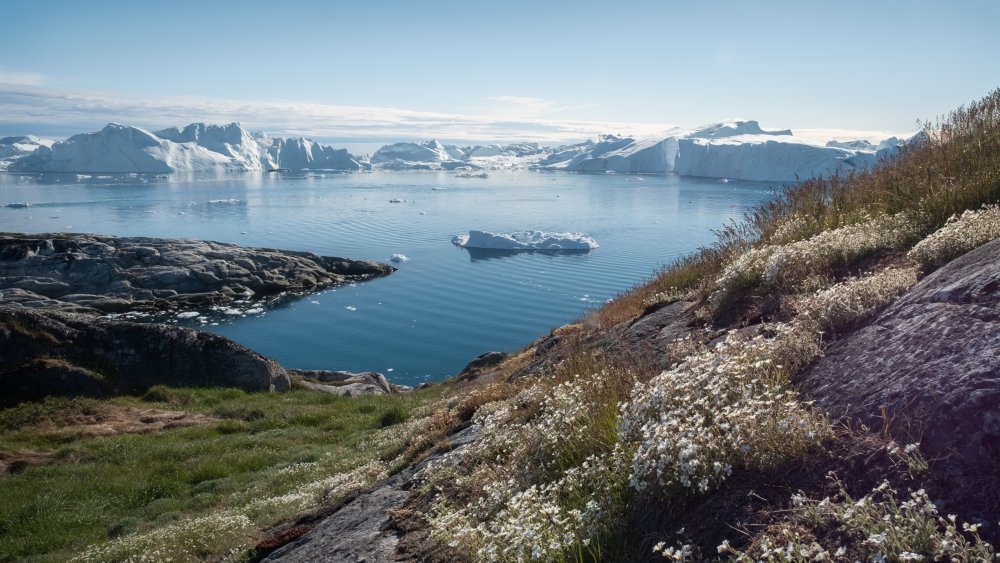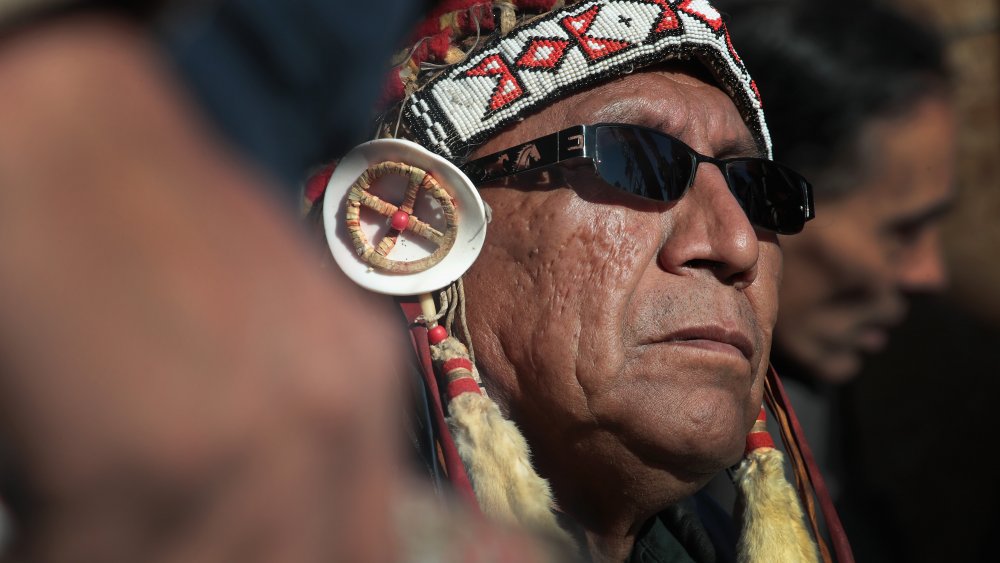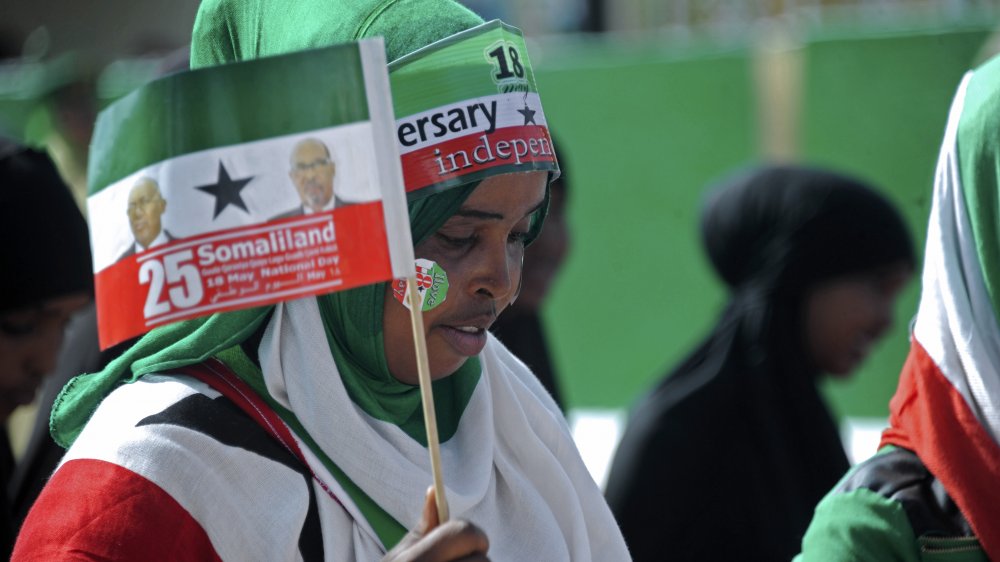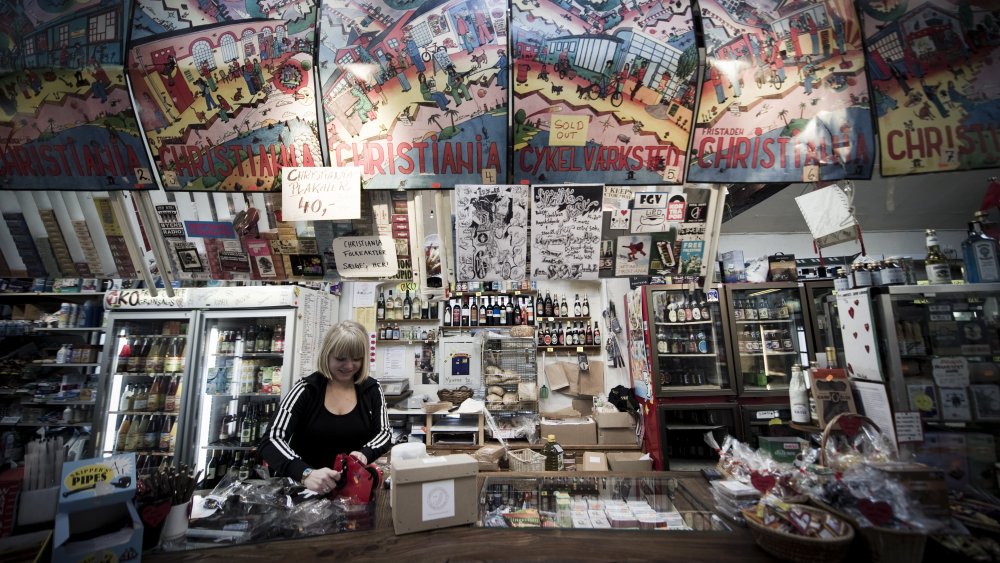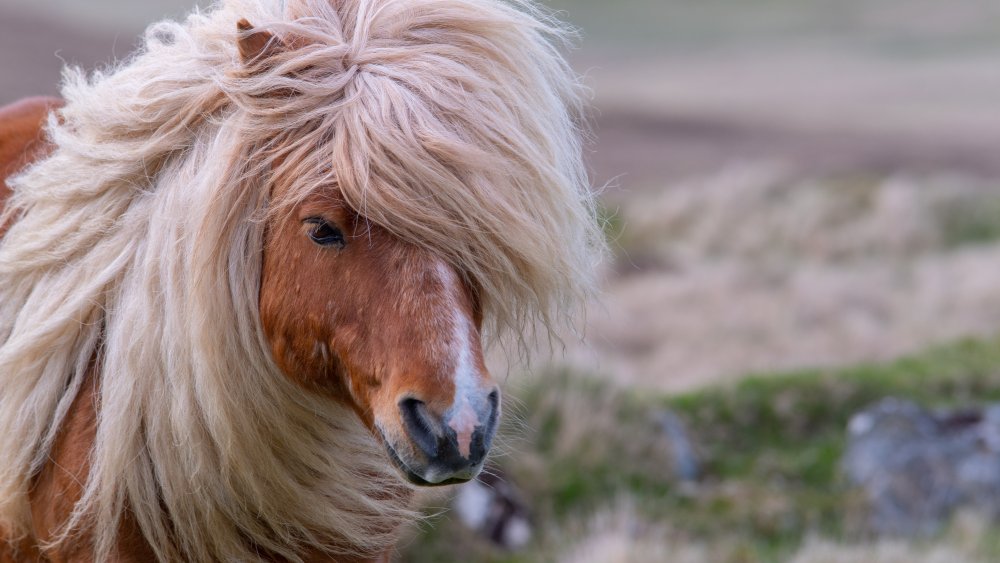Countries That Don't Actually Exist
To the people who live there, these countries are very real. In many cases, they have their own flags, their own governments, their own cultural identities. So... how can they not exist?
In most cases, it's because others tell them they don't. Countries are, at the end of the day, artificial constructs that only exist because others accept that they do — and that acceptance doesn't always happen, no matter how strongly citizens might feel about their nation. Sometimes, that means thousands of people don't have a voice on a global stage. Other times, it means people struggle for recognition and independence against a bigger, badder nation that has more clout than they do — and who's determined to keep them under their boot heel.
Not existing as a country means a lot of different things for a surprising number of nations, and many times, it's not a pleasant state to live in. From striving for acceptance to fighting for independence, it can be frustrating, heartbreaking, and sometimes, it's downright bloody.
Committing 'treason' to peacefully declare independence
Barotseland sits against the western end of Zambia, and until 2012, the region was actually a part of the more well-known country. According to the Unrepresented Nations & Peoples Organization, it's home to 38 distinct ethnic groups, and the Barotse nation dates back to the 15th century. So, what exactly is going on here?
The problems go back to the 1964 Barotseland Agreement, which was a treaty that put "all the obligations and rights regarding Barotseland" under the control of Zambia's government. There was a stipulation, though: Barotseland was to remain autonomous. That didn't happen, and it was absorbed into Zambia and became a province. For years, residents in Barotseland have protested and petitioned for the agreement to be upheld, and nothing good came of it.
Finally, in 2012, the BBC reported that the Barotseland National Council issued a very clear statement: "We the people of Barotseland declare that Barotseland is now free to pursue its own self-determination and destiny. We are committed to a peaceful disengagement with the Zambian government." That went about as well as could be expected, and Zambia accused them of committing treason. Words like "unacceptable" and "irresponsible" were thrown out, and in the following years, Barotseland leaders continued to be prosecuted and jailed for their attempts at independence.
The 'country' founded by an Australian teenager
George Cruickshank (pictured) was a teenager in 1981, and that's also when he and a few friends did the most un-teenagerly thing possible: they founded their own nation, and they named it Atlantium. Officially, Atlantium describes itself as "a self-declared primarily non-territorial sovereign entity and proto-world state that asserts immanent, parallel global sovereignty." So, what does that mean? ABC News spoke to Imperial Majesty George II, emperor and first among equals, to get the inside scoop on what the .76-square-kilometer country in the middle of Australia stood for... and it's brilliant.
The idea is that anyone, anywhere in the world can apply to be a citizen of Atlantium, regardless of whether or not they ever intend on going to Australia, much less making their way to the remote little country. And thousands of people have become citizens, and they're adding their voice to Atlantium's message: "What we're saying is that every person in the world should have the ability in life to maximize their personal potential," Emperor George says. "People are human beings, they have rights. [...] our view [...] is that people should have, really the right, to live anywhere in the world."
Atlantium is a little different than other countries that aren't recognized as official countries, as they say they have no intentions of trying to establish formal diplomatic relationships with others — they're happy to be as they are.
A decades-long struggle for independence and recognition
The long-standing conflict between China and Tibet is complicated, but the BBC sums it up like this: in 1950, China marched their troops into Tibet and said they were taking over. The precedent, they claimed, was that Tibet had been a part of China since the 13th century, but Tibetans say that's just blatantly wrong. In fact, they add, they had declared themselves an independent nation in 1912, and had their own perfectly functional government — along with a fully-formed, unique cultural identity — when China marched in.
Their early 20th-century declaration of freedom was made by the Dalai Lama, and was quite clear (via Free Tibet): "We are a small, religious, and independent nation." They have their own passports, currency, army, and even maintain their own diplomatic relations. But still, they're occupied by China, who doesn't just occupy them, but denies them the freedom to speak about their attempts at independence.
Sometimes, actions speak louder than words. In recent years, dozens of people have protested China's occupation in the most graphic — and often final — way possible: self-immolation. Between 2009 and 2019, the International Campaign for Tibet says 156 Tibetans have set themselves on fire in protest, including 26 who were under 18-years-old. The exact number may be higher, as they note the official causes of some deaths were reported as house fires.
Separated by barbed wire and landmines
In 1975, Morocco annexed a neighboring Spanish colony called Western Sahara. Almost immediately, a group of indigenous peoples organized into the Polisario Front, and started fighting for independence. A ceasefire came in 1991, and still, the two are separated by a massive structure called the Berm. According to The New Yorker, the only defensive fortification longer than the Berm is the Great Wall of China, and for some perspective, building the Berm was like building a wall from New York City to Dallas.
Even though the United Nations controls a buffer zone in the middle, the dispute hasn't been quelled. The Polisario has some serious issues with Morocco, and accuses them of exploiting their land for their natural resources, while at the same time suppressing rights like free speech and patrolling the streets with soldiers, police, and violence.
Around half a million people live in Western Sahara (via the BBC), and in 2018, they were given a new bit of hope that negotiations that had been promised for decades might finally come. National security adviser John Bolton promised a renewed US interest in Western Sahara, but still, diplomatic meetings and suggestions of removing mines and freeing political prisoners were denied.
The rebel republic
The Guardian describes Abkhazia as an area of contrasts: the natural beauty of their forests, their beaches, and their waters is breathtaking, but all too often they stand alongside abandoned and decaying reminders of conflict.
Abkhazia is sandwiched between the Black Sea on the southwest, Georgia on the east, and Russia to the north. Once a popular holiday spot for those in the upper echelons of Russian society, they formally declared their independence in 1999, after fighting — and winning — a war against neighboring Georgia. While they're not recognized on the grand international scale, Russia did acknowledge their independence... while Georgia claimed to see them as a state occupied by Russia (via the BBC).
Even internally, Abkhazia has continued to struggle with a political landscape that's been shaped by protests, presidential voting results annulled after evidence of tampering and cheating were discovered, and even accusations of poisoning candidates. According to Radio Free Europe, Russia's influence — both politically and financially — over the state is undeniable, and as of 2020 it was very unclear as to what was going to happen. Would they cozy up to Russia, or strive for autonomy?
The islands torn between two countries
Technically, the Ryukyu chain of islands — which includes Okinawa, the island that's host to around 25,000 US troops — is a part of Japan. Unsurprisingly, it's not that straightforward. In 2013, The Guardian reported that China was kicking off a territorial dispute and claiming they shouldn't be a part of Japan at all.
And according to the Nation Thailand, there's actually not much that makes Ryukyu Japanese. They have their own music, art, architectural styles, and cuisine, and it's not entirely surprising: they've only been a part of Japan for 135 years. Before that, they were the independent Ryukyu Kingdom, and there's an ever-growing movement that's pushing the idea of the kingdom being once again recognized as independent.
And it's Okinawa and the US that's at the heart of the matter. According to the Peace for Okinawa Coalition, the younger generations of Okinawa residents support independence. They're not happy with the continued presence of American troops, the building of new military bases, the destruction of their coral reefs, and the oppression of their culture. While there's Okinawan communities that were established in various South American countries, they're hoping to reestablish the one on their own island.
We didn't vote for you!
The Murrawarri Nation is in Australia, in an area of New South Wales and Queensland. In 2013, they did something pretty awesome: they sent a letter to the Queen of England and asked her for proof that they were a part of the British empire. That would be the case in only a few situations, including if they had been defeated in war, or if they had signed a treaty. According to Cultural Survival, not only were there no such documents or declarations in place, but the queen didn't even respond — so they decided they were independent, and became the Republic of Murrawarri.
They wrote up a constitution and a bill of rights, and formed a parliament made up of representatives of all the family groups within their territory. And it almost immediately had a huge impact, with other Aboriginal groups starting to do the same thing.
In addition to taking their claims to the United Nations and appealing for recognition as an independent country (via SBS News), they were also in the process of putting together a plan for the negotiation of reparations, to be paid by the British Crown, for years and years of illegal use of their land's natural resources.
The tiny country where Soviet-era Russia still exists
It's called Transnistria (or, according to the BBC, Trans-Dniester), and the thin strip of land between Ukraine and Moldova is home to around 500,000 people. They have their own government, army, and not a single other country that actually acknowledges them as an independent nation ... and that's not the most unique thing about them.
In 1990, neighboring Moldova split from the Soviet Union. At the same time, Transnistria — which had a large Russian population — declared its independence from the newly-independent Moldova. The motive was clear — they wanted to remain a part of the Soviet Union. But the timing wasn't great. According to Wired, the Soviet Union had dissolved by the time Transnistria finished fighting for their freedom, and there was just no Soviet Union to return to.
Russia, in the meantime, has sent some invaluable aid to the state, but they've also refused to acknowledge them as a country. Meanwhile, Transnistria continues to pay tribute to their Soviet state in everything from their art and architecture to the images on their currency. When photographer Justin Barton got clearance to photograph some of the top officials there, he found a nation that was intensely patriotic for something that no longer existed, and described the country as proud and incredibly melancholy at the same time.
The ancient Viking 'country' that's still not a country
Science magazine says we know a lot about the early colonization of Greenland: it started with Erik the Red in around 985, and it wasn't long before the Vikings had set up two settlements with around 3,000 settlers. By 1450, they were all gone.
Still, with that kind of history, it's not surprising that Greenland still maintains close ties with Denmark. In fact, it's still technically a part of the Kingdom of Denmark, and here's the weird thing — that hasn't been official for that long. According to Visit Greenland, there have long been colonies in Greenland that have been governed by Denmark, but it wasn't until 1953 that Greenland was officially folded into the Danish kingdom. Fast forward a bit to 1979, and it saw them being given Home Rule, which essentially gave them the right to have their own assembly. Gradually, their responsibilities have been slowly shifted from Denmark to Greenland's government, making it entirely possible that there will be a day when they're completely independent and recognized as their own country.
And, just for clarification: it's called Greenland because when Erik the Red settled there, he hoped the name would encourage others to follow... showing that you probably shouldn't take the work of someone who has been exiled for murder.
The independent nation that exists in the middle of America
Right in the center of the USA is the last place anyone might expect to find a country that isn't an official country, but it's there, and it's called the Republic of Lakotah. According to NPR, it consists of thousands of square miles across Montana, Nebraska, North and South Dakota, and Wyoming. The land belongs to the Lakota Sioux, who say that there's no need for them to officially break from the States — they were never officially a part of it, they say, and they just want to be recognized as independent.
The republic has been officially independent for a surprisingly long time: they went to Washington, D.C. in 2007 and withdrew from all the treaties that were keeping them beholden to the US. Not only are they looking to the future and independence but to the past: among their goals for their nation is the preservation of the Lakotah language, culture, and ceremonies, as well as the establishment of sustainable energy sources, and raising awareness of the struggles and oppression they have already faced.
What happens when no one else believes in you?
When reporters from The Guardian headed into a particular area in the Horn of Africa, they got off the plane and were greeted with Somaliland officials checking Somaliland-issued visas from a Somaliland consulate. There were flags, currency, and even license plates issued by the country of Somaliland, but as far as other global entities (like the United Nations) were concerned, they were actually in Somalia.
They say that Somaliland's situation is a little different, and it's not that others don't want them to be considered a country, it's that they're faced with "indifference." They say that there's little ethnic difference between Somaliland and Somalia, the country they withdrew from but that most still consider them a part of.
Strangest of all, there was the briefest point in history where they were recognized. In 1960, Somaliland declared independence from Britain and was recognized as being their own country. The very next day, Somalia did the same from Italy. The two newly independent countries merged, but political differences meant the two never saw eye-to-eye. Somaliland declared independence again in 1991, and "the world, for the most part, shrugged." Since then, Somaliland has been struggling for recognition, a movement best symbolized by foreign minister Edna Adan... who carried business cards with a map of Africa, and an arrow pointing to where her country was, because no one knew.
When is a hippie paradise not a paradise?
On the surface, Christiania sounds like it might be a pretty fun place. The story of the little independent state within Copenhagen goes back to 1971, when "a group of hippies, junkies, oddballs, and outcasts" took up residence in an old military complex and decided they were going to be their own, self-governing society and reject any control Denmark had over them. Denmark sort of just agreed to disagree, and Christiania became an independent city-within-a-city where drug dealers could be found alongside vegan restaurants with jam sessions in the street. It's essentially what happened when Woodstock grew up, got married, and had 2.5 kids.
But when CNN visited in 2019, they found that things weren't all free-love-and-flowers. It's been discovered by tourists, rents rose, and a foundation was established to protect residents. The memory of a 2016 shooting that left three people injured was still very fresh. According to The Guardian, the evolving drug trade brought some serious problems with it, including the appearance of Denmark's branch of the Hells Angels. What was once a completely independent sort of hippie haven developed their own self-administration system responsible for maintaining things like infrastructure and schools for those 2.5 kids. While the Christiania as it was founded may have run beneath the radar as a happily independent — and voluntarily unrecognized — country of its own, all good things must come to an end.
Making a statement by establishing your own country
The Shetland Islands are about as far from Scotland as you can get while still being Scotland, and some people think that the Shetlands should be independent. To prove the point, one man established the country of Forvik.
According to researcher Adam Grydehoj (via Shima: The International Journal of Research into Island Cultures), the Shetland Islands — and its 22,000-odd residents — had long ago developed their own culture and national identity. The push to split from Scotland reached a high in 1987, and Forvik really started in 2001. That's when Stuart Hill tried to sail around the British Isles in a homemade boat, wrecked on the Shetlands and decided to stay. By 2008, he had established himself on the little island of Forewick Holm and issued a declaration: he was his own country, it was called Forvik, and any Shetlander who wanted to join him was welcome to do so.
The whole thing never really took off, but Hill still makes it into the news every so often. In 2011, The Guardian reported that he had been sentenced to 100 hours of community service after he had been caught driving around other islands in what he called a "consular vehicle," which he had made his own license plates for. If every great nation starts with a few determined people, Forvik definitely has its fair share of gumption.
